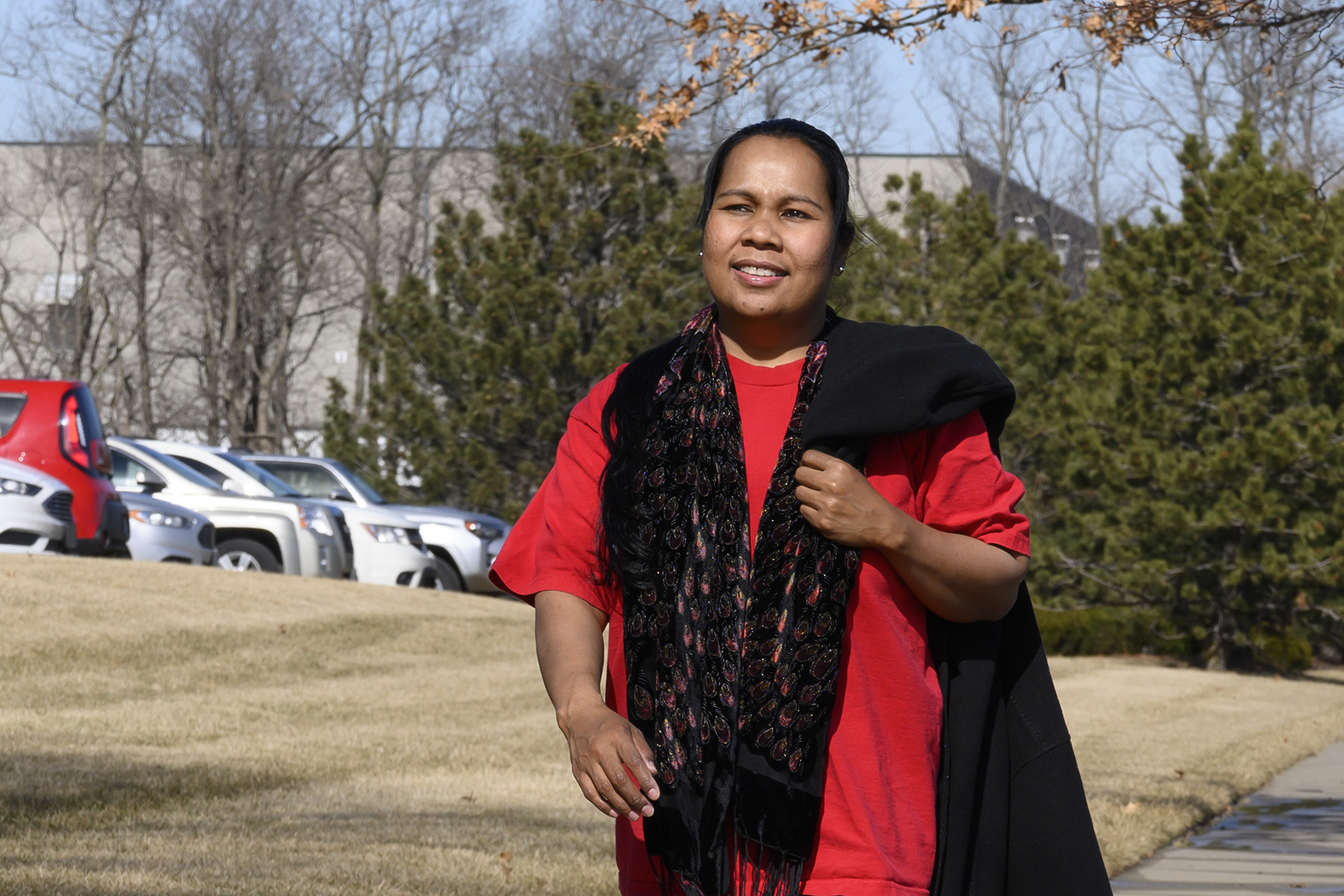Innovative Valve-in-Valve Procedure Allows Mother to be More Active

Jersita Samo, who is 35, has been dealing with heart issues for nearly half her lifetime.
When she was growing up in Micronesia, she started feeling chest pain and shortness of breath at just 15 years old and grew increasingly sick. She went to the local hospital, where a group of cardiologists was treating patients on a mission trip.
“Miraculously, I was one of the patients in the hospital, so they saw my case and studied it,” Jersita said. “They wanted me to go to their hospital in Honolulu. And they paid for my tickets there, the hospital costs, and everything. I was one of the lucky ones.”
In Hawaii, doctors discovered that two of Jersita’s valves were leaking. Surgeons performed open-heart surgery and replaced one of the bad valves with a valve made from animal tissue.
Using valves made from cow or pig tissue is a common practice and may be used instead of mechanical valves in certain patients. Tissue valves do not require blood thinners after the procedure, but they can wear out over time and often need to be replaced.
Six or seven years later, Jersita had open-heart surgery a second time in Hawaii. Surgeons changed out the first valve, which had worn out, and repaired a second.
Jersita started feeling better for a while and moved closer to family in Kansas City, where she met her husband and started a family of her own.
When she gave birth to her second child in 2010, Jersita’s symptoms came back.
“Before, her heart was able to adapt and keep up,” said Dr. Adnan Chhatriwalla, an interventional cardiologist with Saint Luke’s Mid America Heart Institute. “But during pregnancy, your blood volume goes up substantially to supply blood to the fetus. And the heart couldn’t keep up with it and deteriorated as a result. So then even after delivery, her heart had taken a hit.”
Jersita went to her doctor at another local hospital and found out one of her valves had started leaking again. She was told to come in for follow-up appointments every six months.
“Then about two years ago, I started to have really bad symptoms,” Jersita said. “Last year was my most awful year. I don’t want to remember 2018. I lost a lot of weight. And I had a bloated stomach, my feet were swollen, and it was just awful.”
Jersita was referred to Saint Luke’s after being turned down for surgery at another hospital. That is where she met Dr. Chhatriwalla and Dr. Keith Allen, a cardiovascular surgeon.
The two experts evaluated Jersita and determined that they needed to replace two valves.
“The mitral valve wasn’t opening well,” Dr. Allen said. “When that happens, blood can’t get back from the lungs to the heart and out to the body, and blood and pressure was building up backwards into the lungs. That contributed to her shortness of breath.”
Jersita’s tricuspid valve was also leaking severely. That meant her heart was also not efficiently pumping blood forward into the lungs.
Dr. Allen and Dr. Chhatriwalla determined that a third open-heart surgery would be too risky for Jersita, due to cirrhosis of her liver caused by her ongoing health issues. They determined the best option was to replace both valves through a catheter.
Saint Luke’s offers the most innovative valve treatments. The procedure of inserting the replacement mitral valve into an existing surgical valve was just approved within the past year. The tricuspid valve replacement is not yet approved, but Jersita didn’t have any options left. Saint Luke’s was able to work with her insurance company to perform the advanced procedure.
Dr. Allen and Dr. Chhatriwalla performed the ‘valve in valve’ procedure for Jersita in October 2018.
“The bottom line is that when you replace both valves, that improves the efficiency of the heart muscle function,” Dr. Chhatriwalla said. “The right side of the heart is better able to pump blood to the lungs like it’s supposed to, and the left side of the heart is better able to pump blood out to the body like it’s supposed to.”
Today, Jersita is feeling dramatically better. She is more active and can now do more with her two children.
“Before I couldn’t even walk up the stairs,” Jersita said. “And now, on weekends, I walk three miles. I’ve been active with work. I do house chores. I’m on the second floor of my apartment and I can go up and down. I do more outside activities. I spend time with my kids more often… It really, really changed. I’m really thankful for Dr. Allen and Dr. Chhatriwalla.”
Learn more about the innovative treatments offered through Saint Luke’s Valve Program or call 816-932-8258 to set up an appointment at Saint Luke’s Valve Center.
Recent News
Article
Health News You Can Use: Importance of Lung Cancer Screenings
Article
Health News You Can Use: Managing Breast Cancer Treatment Side Effects
Article
Health News You Can Use: Early Onset Breast Cancer and Importance of Early Detection
Article
Health News You Can Use: What Happens After a Breast Cancer Diagnosis
Article
Health News You Can Use: Advances in Treatment for Metastatic Breast Cancer
Article